Ned Breslin: Navigating Public Toilets in the City, Begging for Change in the WASH Sector
Sometimes, all it takes is a little outside-the-box thinking to make a difference, as Ned Breslin describes of a recent trip to Rwanda’s capitol.
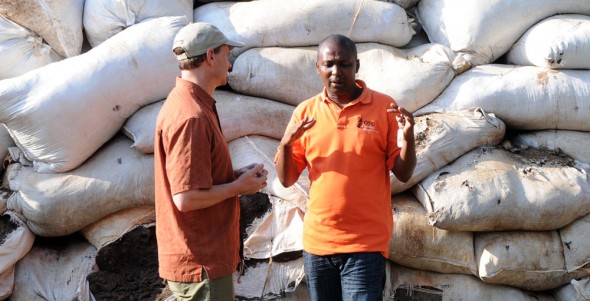
Regardless of what city in the world you are in, finding a clean public facility to take a crap is no easy task.
One of the greatest sanitation challenges is that people’s experiences with sanitation are abysmal: toilets are smelly; toilets are dirty; toilets are clogged. Public toilets are worse — they are needed, but it’s an adventure navigating urine spills and the crap on the floor that is being moved around on everyone’s shoes. And school facilities — wow. Let’s not even go there, pun intended.*
My friend Valentin addresses these issues head-on in Kigali, the capital and largest city of Rwanda, home to nearly 1 million people. Though Kigali is super clean — I mean, it’s so clean here that I am tempted to throw a wrapper on the street, because I am fairly convinced that people wait in the bushes for any sign of litter, then jump out quickly and put it properly in the solid waste bin — just like most cities around the globe, one of Kigali’s greatest challenges is access to clean and hygienic public restrooms.
Which is where Valentin, a sanitation entrepreneur who is developing a pay-for-use public latrine network in the city, comes in. He is transforming the negative perceptions of public latrines: his latrines are clean; his latrines are well lit; his latrines offer a range of services, from laundry and shoe shining to showers and cell phone services.
Furthermore, Valentin’s latrines are well used, probably because he redesigns his systems based on customer feedback: pit depths change; new compartments to manage urine and feces are added; entrances are beautified to be more inviting. Valentin listens to people and is a keen observer of customer behavior. He is gifted that way.
He has all kinds of actionable ideas that add another management and logistical step to his business model — for example, he has installed urine-diverting toilets, and he is selling urine and composted feces to farmers — yet, every time I see Valentin, he has a new idea. And he always has made dramatic improvements since I last saw him.
Since I saw him at the end of February, I’ve been anxious to see Valentin’s latest adaptation. I had heard rumors that his newest latrine block is going to include an exterior wall where movies and adverts could be shown — forward thinking and business savvy!
But Valentin had another surprise in store for me.
In the early morning, as I pulled up to the site — which was still under construction — Valentin rushed to the car, gave me a big hug, and pulled me into the women’s latrines that were still being finished. We walked in the big entrance, and I immediately noticed something different.
Yes, the sinks and faucets were there, as were the line of stalls with squatting pans. But, as we entered the facility, I could see there was a huge room near the back that was completely new and unlike the typical Rwandan facilities. There was a big entrance to the room, with a large door guarding the entrance. Inside the latrine stall was a wide-open space and porcelain-tiled “bench,” where the urine diverting toilet seat settled nicely. This is what was strange, as Rwandans squat to defecate. They do not sit down.
“Do you get it?” Valentin asked me, smiling.
I smiled back and said, “Tell me.”
Valentin replied with an even bigger grin. “This is my EVERYONE room.”
I applauded without hesitation, smiling ear to ear.
Begging For Change
I marvel at how Water For People’s staff and partners have embraced our EVERYONE FOREVER model. They all have that “aha” moment when they find that one person, or group of people, who have been forgotten or neglected, declaring quite simply, “That person/group is EVERYONE for me.”
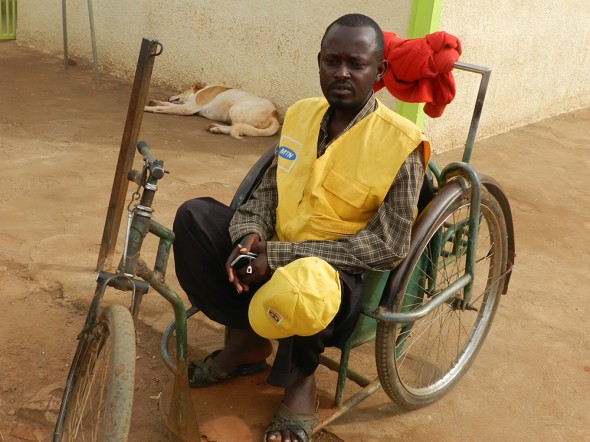
In India, it had required us to actually stop alongside the road and see people who nobody else had wanted to acknowledge. But in Rwanda, Valentin found his EVERYONE sitting right on his doorstep.
It used to be that Rudahunga Alexi’s only use for Valentin’s public facilities were the plethora of people who walked in and out regularly from whom who he could beg for change, since he was not able to use the facilities himself. Rudahunga could not maneuver his wheelchair into the latrine and, even if he could get in, he would not have come off his wheelchair to use a squatting pan.
When Valentin — realizing that Rudahunga could not use the toilets as they were currently designed — decided to embrace EVERYONE, he gave Rudahunga a different kind of change. From now on all of Valentin’s public latrines will be wheelchair accessible, with stalls where people can easily maneuver and use a toilet with dignity.
Now, instead of begging from customers in front of the laterine, Rudahunga sells them MTN cell phone credits. And, when he needs to, he can use the toilet.
Navigating Equity and Inclusion
The water, sanitation, and hygiene (WASH) sector is rightly obsessed with “equity and inclusion,” with making sure investments in improved water supply and sanitation benefit all: young and old; people who walk upright and people who use wheelchairs; EVERYONE.
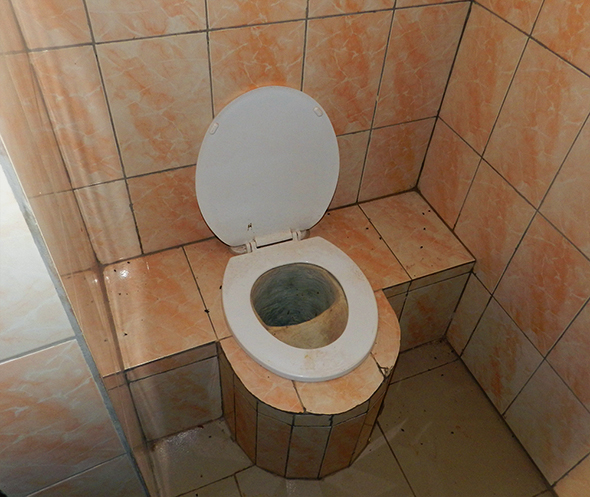
The sector has produced tons of material on this subject — from lengthy documents that explain organizational policies and advocacy strategies to training courses that raise awareness of the issue and how to incorporate equity into programming, from conference workshops where policy people and advocates can “take stock” of progress to manuals where innovators promote better designs.
These policies, training courses, and manuals are well thought out and helpful deliverables that allow us to start thinking of critical issues that must be considered when addressing issues of equity and inclusion. And I get all that. But Valentin has never read these documents or manuals; he’s never attended a training course or a conference workshop. What I’m saying is, he didn’t need these deliverables to help him “understand” the challenges that people with disabilities face.
Instead, Valentin simply embraced the concept of EVERYONE. By looking around him, Valentin saw a man who was in the public eye, right in front of his public pay-for-use latrines, but who nobody seemed to truly see before. Valentin saw a man who could not use his facilities and who made him realize that his facilities were therefore not accessible for EVERYONE. At that “aha” moment, Rudahunga became Valentin’s EVERYONE.
Water For People’s staff and our partners, like Valentin, are navigating their way through this discourse and are opening all of our eyes, because they are being trusted to figure out “equity and inclusion.” Not at conferences, even though conferences can be important. Not at training workshops that “sensitize” people into understanding. No, they are figuring out “equity and inclusion” by looking around, talking with their communities, asking the hard questions, embracing the beauty, the challenge, and the value that goes along with this, and being proud of the fact that nobody gets left behind in the EVERYONE FOREVER model.
Please join us as we continue to push the boundaries with Water For People’s EVERYONE FOREVER movement.
Ned Breslin
Follow Ned Breslin on Twitter.
***The NGO CARE and Emory University’s Center for Global Safe Water have done great work in western Kenya on water and sanitation at schools (for example, see this). Recent research by them suggests that the cleanliness of latrines — not the availability of latrines themselves — appears to be a factor in whether or not children go to school (publication forthcoming). Qualitative information also suggests that latrine conditions are a factor in whether or not children use the latrines at school, if they do attend (forthcoming, as well).Watch for these topics in a future blog posting.

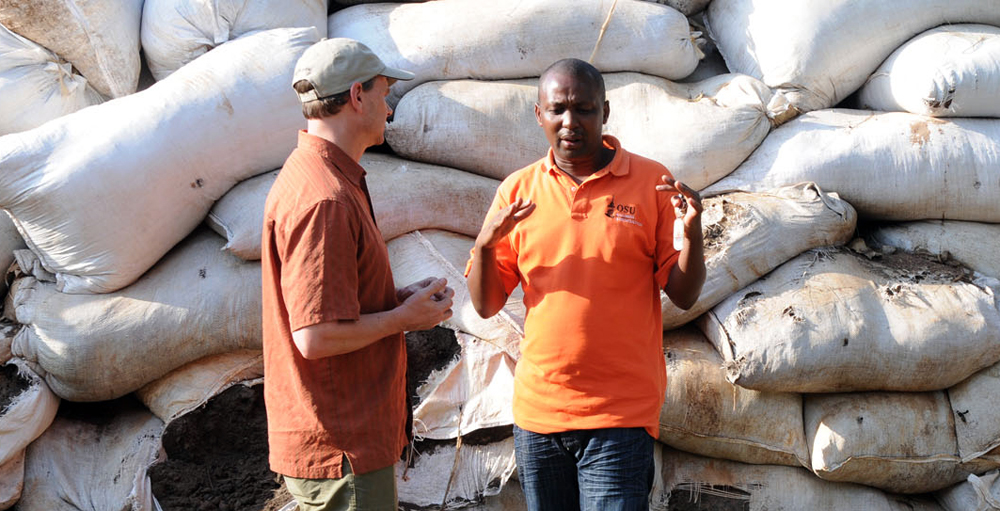

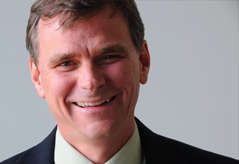
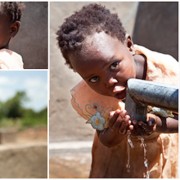
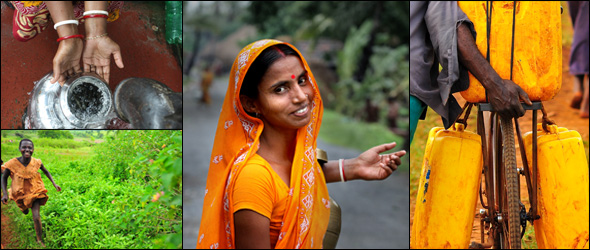
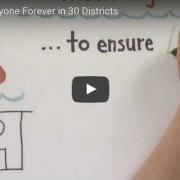



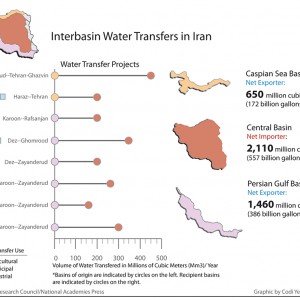

Sounds like Valentin is doing something similar to David Kuria and his IkoToilets. Always great to hear when someone can make a living while doing something they love and helping others at the same time. I’ll look forward to hearing what Valentin comes up with next.
Brian, we did a story on David Kuria a few years back. Check it out here: http://99.198.125.162/~circl731/2010/world/david-kuria-sanitation-and-toilet-entrepreneur/
I think there are lots of similarities, Brian. I think what I love most about Valentin is that he is really expanding his business throughout the city. I have lost track of the scale of David’s work, to be frank, but I am hoping it’s moving forward!
I love what Valentin has done here. Encompassing the underprivileged was a much required task. These toilets look efficient and innovative and provide access to a huge chunk of Rwandian population. I am a student, and I also happen to study the design of efficient toilets… here is an idea to reduce the water consumption of toilets in demographics like Rwanda where there is a scarcity of water and efficient sanitation facilities: http://sandhyamathur.in/blog/2012/04/eco-latrines/